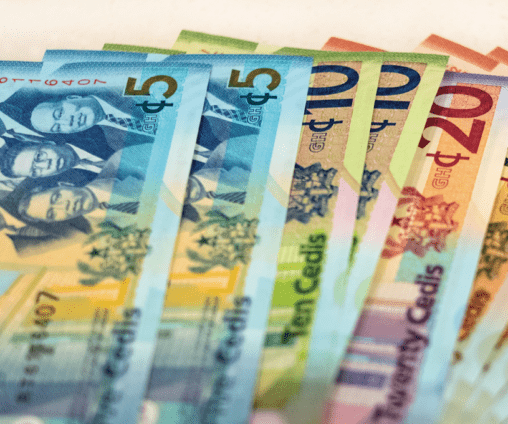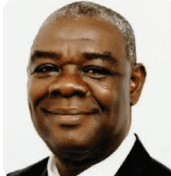By Joshua Worlasi AMLANU & Ebenezer Chike Adjei NJOKU [email protected]/ [email protected]
After weeks of sustained depreciation, the cedi has, in the past week, shown signs of recovery against some of its major trading counterparts.
This positive development comes amid a successful intervention by the Bank of Ghana (BoG) and Parliament’s approval of a US$300million loan facility from the World Bank.
This comes after a modest 2023, where the cedi cumulatively depreciated by 7.2 percent against the US dollar between February and December, as the local unit had baulked under the pressure of increased corporate demand for foreign exchange (FX) due to operational considerations as well as the emergence of profit-taking season.
Data shows a 0.93 percent and 1.43 percent week-on-week appreciation of the cedi against the British Pound (GBP) and Euro (EUR), respectively. The exchange rate with the USD remained steady at GH¢12.98.
Analysts attribute this newfound stability, in part, to the BoG’s strategic intervention. The central bank injected US$17million into the market, helping to curb depreciation pressures. This is in addition to over US$106.10million injected through the apex bank’s spot market operations and sales to bulk oil distribution companies (BDCs) in January and February 2024.
“Although corporate demand exerted some pressure on the cedi, the BoG’s marginal US$17million market intervention helped hold the cedi steady,” analysts at Databank confirmed in their commentary on the development.
The most significant boost, however, is expected to come from the World Bank loan. The Parliament’s approval of this facility on Friday, March 8, 2024, with its favourable terms – a 26 percent grant element, a 25-year repayment period and a 5-year grace period – is considered a major win for the country and is expected to bolster foreign exchange reserves.
“Looking ahead, we perceive scope for stability for the local unit in the near term as the Parliament of Ghana approved a US$300million World Bank facility last Friday… We expect an imminent disbursement of this facility to improve liquidity and strengthen the intervention capacity of the central bank,” Databank added.
This US$300million loan is the first of three instalments that are part of the World Bank’s Resilient Recovery Development Policy Operation. This initiative aims to help Ghana bounce back from a crisis and build a stronger economy that is more resilient.
Its approval was initially met by disapproval from the Minority side of the House. They argued the government should raise the money itself by cancelling tax breaks for companies in the One District One Factory programme. In response, the Finance Minister, Mohammed Amin Adam, promised to examine these tax breaks and report back to Parliament within two weeks.
The funds are earmarked for initiatives aimed at strengthening economic fundamentals. These include promoting fiscal and financial sector stability, stimulating private sector growth, and fostering discipline within the energy sector. Additionally, the loan aims to enhance Ghana’s social and climate resilience.
Experts believe the loan’s disbursement, expected imminently, will further solidify the cedi’s recent gains. However, some uncertainties remain surrounding the transparent and judicious use of the funds, especially in an election year. Despite these considerations, the overall sentiment surrounding the cedi is cautiously optimistic.










